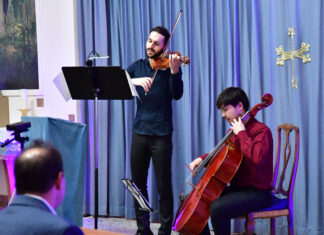By Elif Shafak
The Hungarian-British writer Arthur Koestler, born in Budapest at the turn of the last century, became, over the course of his life, intimately familiar with the dangers of authoritarianism. It was the corroding effects of such rule on the human soul that preoccupied him as much as the unbridled concentration of power. “If power corrupts,” he wrote, “the reverse is also true: persecution corrupts the victim, though perhaps in subtler and more tragic ways.”
If Koestler is correct, and authoritarian regimes end up corrupting, along with themselves, their critics, then the Turkish literati have yet another reason to worry. For years, we have been journeying through a dark, narrowing tunnel of “illiberal democracy.” The ruling élite of President Recep Tayyip Erdogan’s party, the A.K.P., has refused to acknowledge that free elections are not enough to sustain a democracy. There are other necessary constituents: separation of powers, rule of law, freedom of speech, women’s rights and minority rights, and a diverse, independent media. Without these bulwarks, the ballot box alone only paves the way for “majoritarianism” at best and authoritarianism at worst.
The attempted coup in July, which left more than two hundred people dead, was shocking and wrong; it made everything worse. But it is one of the endless ironies of Turkey that the liberals and democrats who were among the first to oppose the putschists’ sinister attempts to overthrow the A.K.P. government would also become the first to be punished and silenced by that very same government. More than a hundred and forty journalists are in prison in Turkey today, making the country the world’s leading jailer of journalists—surpassing even China. Friends and colleagues have been exiled, blacklisted, arrested, imprisoned. The esteemed linguist Necmiye Alpay, who celebrated her seventieth birthday behind bars; the novelist Asli Erdogan; the novelist Ahmet Altan; the scholar Mehmet Altan; the liberal columnist Sahin Alpay; the editor-in-chief of the secularist Cumhuriyet newspaper, Murat Sabuncu, and his literary editor, Turhan Günay — the list of imprisoned writers and journalists is daunting, and we all know, deep down, that it could get even longer any day.
The New York Times recently reported that “mainstream authors have enjoyed an odd, if partial, immunity to the crackdown by the government.” But what we do not know are the effects of the ongoing crackdown on those of us who are “free.” As one commentator wrote on social media, “If all these writers are ‘inside,’ none of the other writers can really said to be ‘outside.’ ”
We need fiction — not less, but more — at times of turbulence and unrest. But it would be naïve to assume that our fiction is immune, untouched by these events. Since the Arab Spring, I have had many exchanges with writers from “wobbly geographies” — Egypt, Pakistan, Libya, Tunisia. We all know that when you are a novelist from such territories, you do not have the luxury of being apolitical. And although every discipline in the arts is susceptible to degeneration and manipulation under authoritarian regimes, fiction is particularly at risk in such circumstances — prose, rather than poetry. In “The Prevention of Literature,” George Orwell considered the fates of the two genres under nondemocratic rule. A poet could survive despotism relatively unscathed, unhurt, Orwell thought, but not a prose writer, who could neither control nor limit the range of his thoughts without “killing his inventiveness.” Orwell examined the ways in which literature had withered away in Germany, Italy, and Russia whenever autocracy was on the rise. Then he warned future writers, “Poetry might survive in a totalitarian age, and certain arts or half-arts, such as architecture, might even find tyranny beneficial, but the prose writer would have no choice between silence or death.”







